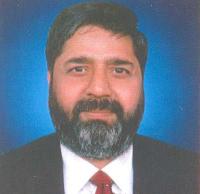

Kashmir leadership is reticent over the coming visit of Prime Minister Narendra Modi on Sunday, it is neither voicing its expectations nor showing any unusual interest in the visit which officially is being hailed as “historic”.
Prime Minister will be addressing panchayats across the country from Palli village in the border district of Samba in the plains of Jammu region of the union territory of Jammu and Kashmir on the national Panchayat Day on April 24. The significance of the visit lies in the fact that it is Modi’s first visit to J&K since the abrogation of Article 370 on august 5, 2019, the move which he had said would end all the problems of the place as they would live under the certainty of “one nation, one constitution”. This, he had also stated as a measure that would rid J&K of terrorism and open vistas for the extension of the people-friendly policies of the Central government which hitherto were subject to the approval of the state legislature, when J&K was s state in the Indian union with special status, rights and privileges.
Around the same time last year – June 24- there was a lot of excitement filled with unusually high expectations among Kashmiri leaders when the PM had called an all-Party meet of Kashmiri parties in Delhi. They were hoping for a major breakthrough as they understood as the beginning thaw in the frozen relationship between the Centre and Srinagar following the abrogation of Article 370 on august 5, 2019- the entire mainstream and separatist leadership were detained and hundreds of others were deemed as potential trouble-makers sent to jails within and outside of J&K.
They were encouraged by PM’s words, ”We want to reduce Delhi or Dil Se duri”, underlining how he and his government were keen on reducing the distances and differences between Delhi and Kashmir. They interpreted it as a response to their pleas to release the political prisoners as also the innocents lodged in jails. In the weeks and months that followed, they started voicing their disappointment over no step forward in bringing Kashmir on board > According to them, including the towering leaders like Farooq Abdullah, Mehbooba Mufti, “ not even the baby steps have been taken..
“ We are not happy the way the Dil se or Delhi se Duri remains a meaningless phrase,” said angry Mehbooba Mufti who heads the People’s Democratic Party that had ruled the erstwhile state in alliance with the BJP for three years – 2015 to mid-June 2018.
Farooq Abdullah who heads the National Conference, the premier political party of Kashmir, has cadres all over the region, including Ladakh, which now sits as a separate UT, voiced similar concerns. “There has been no progress and we are stuck where we were.”
Now when PM is visiting J&K, almost close to a year after he hosted the all-party meet, it was expected that the Kashmiri leadership would air its grievances and expectations, particularly with regard to the absence of the elected government and confidence building measures to restore statehood to the UT of J&K. They are not speaking, but it appears that they are in a wait and watch mode.
It is clear that the Kashmiri leadership doesn’t want to jump the red line, for it has experienced that voicing high expectations can backfire and they suffer political embarrassment in the eyes of the people. They don’t want to repeat June 24, 2021. The only leader who has spoken is Apni Party’s Altaf Bukhari, who too, has not made any call for the political concessions, but highlighted a humanitarian issue – the regularization of the daily wagers, who are above one lakh in number. He appealed to PM to intervene and resolve this humanitarian issue, as it concerns not only the one lakh daily wagers but also their families.
Kashmiri leaders, who carry big names and parties are adopting the silent mode because they don’t want to be dragging themselves to any controversy. If they pin expectations on the PM’s visit, they would be running the risk of silence from PM on the issues that they would have liked to raise and if they chastise the Centre for what they call its failures in J&K, they also run the risk of getting harsh criticism in return for all their failures in the past over seven decades before the constitutional changes made on August 5, 2019.
The best option, it appears is to keep silent, and that’s the safest strategy for them.

